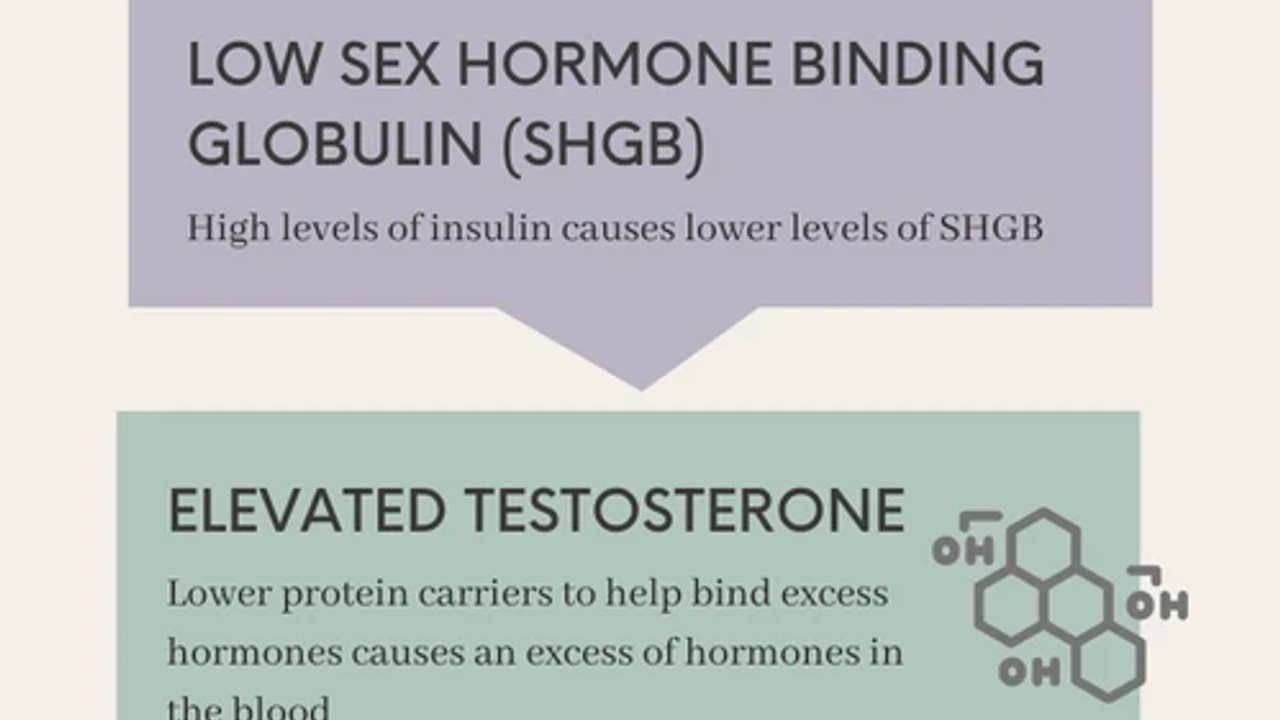How to Address Your PCOS and Get Regular Periods
Jun 07, 2022
So you've been diagnosed with PCOS, now what?
Or maybe you've had PCOS and you've tried all these things, and as soon as you stop, all your symptoms come right back.
Irregular periods
Infertility
Lighter periods
Heavy periods
Painful periods
Excessive hair growth (facial or body)
Cystic acne
Insulin is a hormone secreted by your pancreas. Its job is to convert glucose into energy for use in your body.
With insulin resistance, your pancreas is pumping out a lot of insulin but your body isn't responding to it. So, you wind up with a lot of excess glucose in your blood (since insulin can't do its job).
When you have elevated levels of insulin, this isn't just affecting your glucose levels. It's also affecting other hormones, like testosterone.Elevated insulin levels cause elevated testosterone levels by lowering sex hormone binding globulin (SHGB).SHGB is a protein carrier that binds excess hormones. When you have lower levels of these carrier proteins, you have more free floating hormones (like testosterone).With excess testosterone in the blood, it causes issues with ovulation, and many of the symptoms we see with PCOS like cystic acne, infertility, facial and body hair growth, etc.
WHAT CAN YOU DO ABOUT IT?
1. Address the insulin resistance: Since the underlying issue for a majority of PCOS is elevated insulin, this is going to be the first place to start!
-
Protein with EVERY meal. Aim for about 20g with each meal.
-
Don't skip breakfast. There is a lot of research to show that eating a high protein breakfast helps to stabilize your insulin levels throughout the day.
-
If you're going to do intermittent fasting, skip dinner, NOT breakfast. This goes along with the above statement, that eating breakfast is going to significantly improve your insulin levels throughout the day. So if you enjoy doing IF, then try to make dinner the meal you miss out on, not breakfast.
-
Include enough fiber with your meals. Greens, whole grains, veggies, fruits, legumes, and other plant foods are going to be great sources of fiber. Make sure to include a full cup of veggies, or 1/2 cup of whole grains or legumes with every meal.
2. Establish a healthy sleep routine: Your sleep affects cortisol, which affects your circadian rhythm, and your insulin levels. Creating healthy sleep habits will make a world of difference for your hormones and so many other aspects of your health.
-
Leave at least 30 minutes for winding down WITHOUT screens before you go to bed. Do whatever you want in that 30 minutes that's a low stimulating activity (baths, yoga, stretching, reading, etc).
-
Keep your bedroom as dark as possible. Use blackout curtains, a sleep mask, etc. Light can be detected by your eyes, even when they're closed and this keeps cortisol active. Make sure to sleep in a DARK room.
-
Do some paced breathing or meditation for at least 10 minutes. Paced breathing or any other deep breathing is helpful for activating your parasympathetic nervous system. This is the nervous system that's responsible for rest and digest (not only will it help you sleep, it will also help with your gut function).
3. Make sure you have adequate vitamin D levels. About 67-85% of women with PCOS have a vitamin D deficiency.
-
"Low 25(OH)D levels may exacerbate the symptoms of PCOS, including insulin resistance, ovulatory, menstrual irregularities, infertility, hyperandrogenism, obesity and elevate the risk of cardiovascular diseases." (PMID: 26458338)
-
Make sure to ask your provider to run these levels along with your other blood work. A range to shoot for is between 50-80. While "sufficient" on the lab work will say anything above 20-30, 50-80 is the range we want to strive to be in for good health, not just adequate.
4. Daily exercise and movement. This doesn't mean you have to avoid HIIT!
-
Many women hear that if they have PCOS, they automatically need to be avoiding HIIT workouts. This is a MYTH. It all depends on your recovery. Some women may be able to recover well from doing HIIT workouts every so often, while others may not.
-
If you feel exhausted after a workout, or feel too tired the next day to workout, then you may be overdoing it and HIIT activity isn't right for you at this time.
-
If that's the case, then stick to strength training/weight training, and steady state cardio. Both of these will help improve metabolic measures, and therefore insulin/blood sugar levels.
5. Stress management! This one is very important, especially if you have non insulin resistant PCOS and your testosterone levels are normal, but your DHEA levels are elevated.
-
Paced breathing (it's showing up again!) for 10 minutes twice/day. Use this app or any meditation app that has a pacer. Shoot for 6 breaths per minute, and if you're new to paced breathing, do only inhales and exhales, without any breath holding.
-
Yoga, meditation, or another slower movement that forces you to be in your body and breathe. Again, this will help activate your parasympathetic nervous system to help regulate your cortisol levels.
-
Adaptogens. My favorite class of herbs to help with stress and adrenal health. A few of my favorite herbs include ashwagandha, rhodiola, maca, tulsi, and eleuthero.
SUBSCRIBE FOR WEEKLY HORMONAL HEALTH INFO
Learn about lab testing, supplements, nutrition, and more!
We hate SPAM. We will never sell your information, for any reason.



